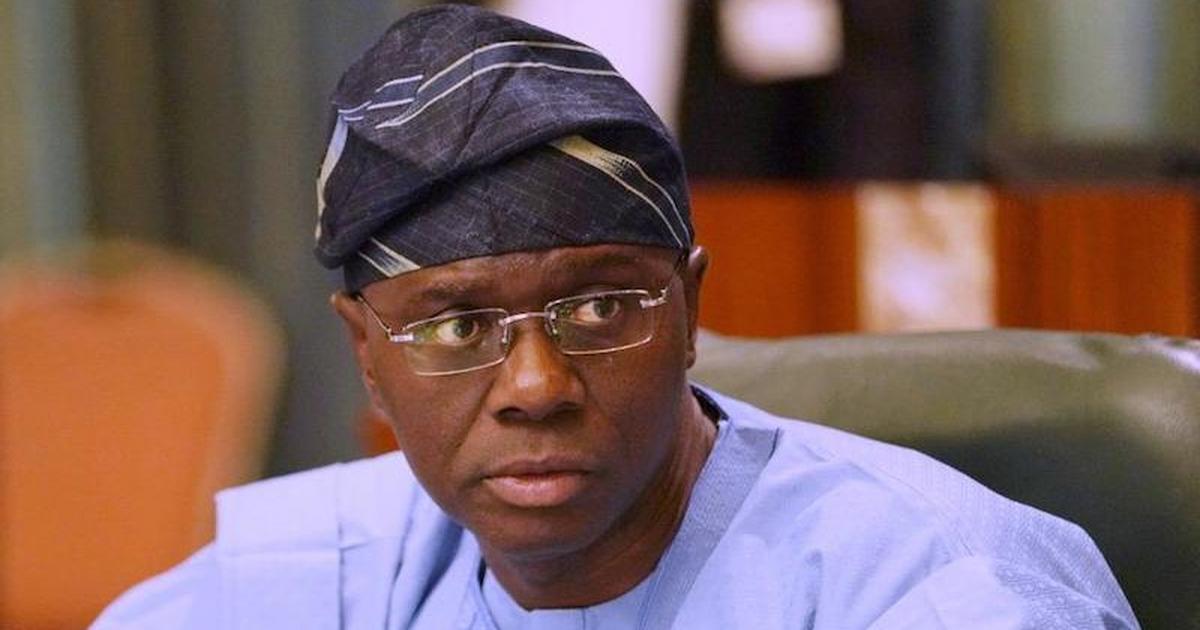Sanwo-Olu: Two testy days at work
Judge him by his modest frame, and you would be making a big mistake. Consider the weight of his office, and you might think that he would be averse to taking personal risks, and you would be wrong again. He is no heavyweight boxer, yet he packs a devastating punch. He does not possess the […]

Governor Sanwo-Olu of Lagos State
Judge him by his modest frame, and you would be making a big mistake. Consider the weight of his office, and you might think that he would be averse to taking personal risks, and you would be wrong again.
He is no heavyweight boxer, yet he packs a devastating punch. He does not possess the oratorical prowess of Marcus Cicero or the fiery Rev Martin Luther King Jr, or Bola Ige, our own Cicero, God bless their souls; yet his eloquence is striking and his words can rouse a crowd to action. He is no soldier, yet he as bold as a lion.
I am speaking of my boss, the one whose administration is “bankrolling” me, as it were: Lagos State Governor Babajide Sanwo-Olu.
The anti-Special Anti-Robbery Squad (SARS) protests had been going on for days, with angry youths seizing some sections of Lagos – Nigeria’s business and financial engine-room by the neck. The tension anxiety that gripped the city were palpable. Prominent citizens and ordinary folks were worried that the gathering clouds portended danger.
Hundreds of protesting youths camped on the Lekki Expressway. Another group was stationed at the House of Assembly gate, screaming: “No more SARS”; “No to police brutality”; “End SARS” and more. Their fire-red eyes spoke volumes. Some were roaring, their youthful necks expanding and contracting. They pumped the air with their fists.
Sweating and screaming, hundreds of protesters pulled off their shirts and wound them round as protection from the scorching Lagos sun (31C). The protesters vowed that they would not vacate the road they were occupying until their demands were addressed.
On Monday, Governor Sanwo-Olu cut short an Executive Council meeting to address the angry crowd. His security detail, it was later learnt, had tried to dissuade him from embarking on a venture which they considered “dangerous”.
“It is a mob with no known leader, who can tell them to come for a discussion,” the governor was told.”
He disagreed.
“Taking no action is no option,” the governor told his Executive Council members.
He chose a few of them, the younger ones mostly, to join him on the short drive to the Lekki Toll Gate, the heart of the protests. Sanwo-Olu told his security officials to stay back as he walked like any other person on the street. He was dressed like a typical Lagos boy – a fez cap, a grey sport shirt, a pair of jeans, and dark trainers. Smart.
He was calm. Even as the roaring crowd surged forward, he was unruffled. A young woman was reciting all manner of grievances against SARS. She was barely audible. Some were hailing the governor. “Sanwo-Eko! Sanwo-Eko!” they yelled. The governor kept a straight face. His serious mien betrayed a critical fact – this is quite different from a campaign crowd; it is a crowd of seemingly implacable youths. A protester offered Sanwo-Olu his open-roof vehicle. The governor mounted it. He grabbed the mic and began to address the unruly protesters.
“Your voice has been heard clearly and a clear pronouncement has been made on the activities of SARS. The operation has been dissolved by the police leadership and just a moment ago. Sanwo-Olu said. “Mr. President addressed the nation on the issues you have raised. The President has said all SARS officers that are involved in the killing of innocent people and engaging in human rights abuses will be brought to justice.”
He went on: “My stance on this EndSARS protest is unmistakable and I have told you that we identify with this protest because you have legitimate concerns. I am saying it again here that this protest is in good faith. But, we must not be unruly when going out on a protest like this. We want you to be peaceful and decorous in expressing yourselves.”
Were they pleased? No. Was the governor happy? Sure. He was in high spirits because his belief that the youths needed to be engaged had turned out to be right. Then, there were the backroom engagements.
After a long Security Council meeting, Sanwo-Olu held virtual meetings with a group of youths who told him what they felt was the way forward. They wanted all those detained in connection with the protests released. Sanwo-Olu broke to them the news that they had been let off the hook – and the younger ones were allowed home to their parents. But the youths insisted that one of them was being held at Panti Police Station. Sanwo-Olu assured them that he would be released. And he was.
Those fast-moving days of riveting events might well have been taken from the thriller, Kevin Maurer and Matt Bissonnette’s “No Easy Day,” only that, in Lagos, there is no easy day. When Sanwo-Olu is not leading his team to deal with one pressing issue or one emergency or another, he is taking the lead in preparing them for the next.
Omotosho, Lagos State Commissioner for Information and Strategy, writes from Lagos
